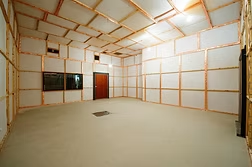The Rise of Real Estate Tokenization Platforms: A New Era for Global Investors

Table of Contents
ToggleIn the world of best real estate tokenization platform, the landscape has always been shaped by the financial barriers that come with purchasing properties, along with the traditionally slow processes involved in buying, selling, and transferring ownership. However, the rise of real estate tokenization platforms is quickly revolutionizing this market. By leveraging blockchain technology, these platforms allow investors from all around the world to own fractional shares in real estate properties, dramatically increasing accessibility, liquidity, and transparency. In this article, we’ll explore how real estate tokenization platforms are paving the way for a new era of global investment opportunities and why you should consider this emerging investment opportunity.
What is Real Estate Tokenization?
Real estate tokenization is the process of converting physical property ownership into digital tokens that are recorded and stored on a blockchain. Each token represents a fractional share of a real estate asset, making it possible for multiple investors to hold a stake in a single property. These tokens are then bought, sold, and traded on blockchain platforms, providing much-needed liquidity and global accessibility for real estate investments.
In the past, purchasing real estate typically required significant capital upfront and was often limited to wealthy individuals or institutional investors. However, tokenization opens the doors for anyone to invest in real estate with as little as a few hundred dollars. This democratization of property ownership is one of the key advantages of real estate tokenization platforms.
How Real Estate Tokenization Platforms Work
The mechanics of real estate tokenization platforms may seem complex, but they are designed to simplify the process for investors. Here’s a breakdown of how these platforms work:
1. Asset Selection
The first step in the tokenization process is selecting a real estate asset to tokenize. This could range from residential properties and commercial real estate to industrial facilities. Once the asset is selected, the property is legally structured and a Special Purpose Vehicle (SPV) is often created. The SPV holds the real estate and issues digital tokens that represent fractional ownership.
2. Token Issuance
The next step is the issuance of tokens. These tokens are typically created on a blockchain, such as Ethereum, using smart contracts. Smart contracts automatically execute the terms of the agreement between the investors and the property owner, such as distributing rental income or executing sales agreements when tokens are traded.
Each token represents a fraction of the real estate asset and can be bought or sold on the tokenization platform. The ownership of these tokens is recorded on the blockchain, making it secure and transparent.
3. Investment Process
Investors can browse available tokenized real estate assets on the platform, review property details, and decide how much they wish to invest. The platform allows for payments in both cryptocurrency and fiat currency, depending on the platform’s setup. When an investor purchases tokens, they own a portion of the property and are entitled to a share of any rental income or capital appreciation that the property may generate.
4. Liquidity and Trading
One of the most exciting aspects of real estate tokenization is liquidity. Unlike traditional real estate, where selling a property can take months or even years, tokenized properties can be sold and traded on secondary markets almost instantly. This allows investors to exit their investments at their discretion, providing them with the flexibility and liquidity that was once unavailable in the real estate market.
Why Real Estate Tokenization Platforms are Changing the Investment Landscape
Real estate tokenization platforms have several key advantages that are reshaping the investment landscape. Let’s take a closer look at why this trend is gaining momentum:
1. Lower Barriers to Entry
Historically, real estate investment required substantial capital. A single property could cost hundreds of thousands or even millions of dollars. Real estate tokenization reduces these barriers by enabling fractional ownership. Investors can now purchase a small stake in a multi-million dollar property, allowing individuals to participate in high-value markets that were previously inaccessible.
Tokenization enables anyone to invest in real estate with as little as a few hundred dollars, which is a significant shift from the traditional approach. This democratization of real estate ownership opens the door to a broader pool of investors, including those who were traditionally excluded from the market.
2. Global Access to Real Estate
One of the most exciting aspects of real estate tokenization platforms is the ability to invest in real estate across borders. Traditionally, real estate investments were limited to local or national markets. However, tokenization platforms remove these geographic boundaries, enabling investors from anywhere in the world to participate in real estate markets they might not have had access to otherwise.
For example, an investor in Tokyo can now purchase a fractional share of a property in New York, London, or Dubai. This global access to real estate assets expands investment opportunities, creates a more liquid market, and enables a more diverse pool of investors to participate.
3. Increased Liquidity
Liquidity has always been one of the biggest challenges in traditional real estate. In order to buy or sell a property, investors often need to wait months or years to complete the transaction. Tokenization solves this problem by allowing tokens to be traded on secondary markets, meaning investors can sell their fractional ownership shares as easily as they would sell stocks or other assets.
With increased liquidity, tokenization also makes real estate investments more flexible. Investors can now adjust their portfolios in real-time, responding to market changes, personal financial needs, or shifting investment strategies.
4. Transparency and Security
Blockchain technology, the backbone of real estate tokenization platforms, offers a level of transparency and security that traditional real estate transactions simply cannot match. Every transaction is recorded on a decentralized ledger, providing a transparent and immutable record of ownership and transactions. This reduces the risk of fraud and disputes, as the blockchain ensures that all information is publicly accessible and verifiable.
Additionally, blockchain’s security features, such as encryption and smart contracts, help ensure that ownership and transactions are handled safely and automatically. These features create an environment where investors can feel confident that their investments are secure.
5. Diversification
Tokenization platforms allow investors to diversify their portfolios by owning fractional shares in multiple properties across various geographical locations and asset types. In traditional real estate, investors typically needed to commit to one large property. With tokenization, however, investors can spread their investments across residential, commercial, and even industrial properties, reducing the risk associated with having all capital tied up in one property.
6. Passive Income Potential
Tokenized properties often generate rental income, and token holders are entitled to a share of this income based on their ownership percentage. For investors seeking passive income, tokenized real estate is an attractive option, as it allows them to earn a portion of rental income without the day-to-day management responsibilities typically associated with traditional property ownership.
The Challenges Facing Real Estate Tokenization Platforms
While real estate tokenization platforms offer tremendous potential, there are still challenges to overcome:
1. Regulatory Uncertainty
Real estate tokenization is still in its early stages, and the regulatory environment is not yet fully developed. Different countries have varying laws regarding the tokenization of assets, and some jurisdictions may not yet have clear guidelines on how tokenized real estate should be regulated. This lack of uniformity can create uncertainty for investors and developers alike.
2. Technology and Adoption Barriers
Despite the benefits, blockchain technology can be intimidating to some investors, especially those unfamiliar with cryptocurrencies and digital assets. Educating the public about the advantages of tokenization and how it works will be key to widespread adoption.
3. Platform Trustworthiness
As with any emerging technology, there are potential risks related to platform security and integrity. Not all tokenization platforms are created equal, and investors need to conduct due diligence to ensure they are working with reputable, trustworthy platforms that have strong security measures in place.
The Future of Real Estate Tokenization
The future of real estate tokenization is promising. As blockchain technology continues to evolve and regulatory clarity increases, tokenization platforms will become an increasingly attractive option for global investors. We can expect to see more platforms offering tokenized real estate investments, more properties being tokenized, and increased mainstream adoption of this innovative investment model.
Real estate tokenization is poised to be a game-changer, allowing people from all walks of life to invest in real estate and gain access to the benefits of property ownership. Whether you’re a seasoned investor or someone looking to enter the world of real estate for the first time, tokenization platforms offer a flexible, transparent, and accessible path to participate in the global real estate market.
Conclusion
The rise of real estate tokenization platforms marks the dawn of a new era in global investment. With lower barriers to entry, greater liquidity, and the ability to invest across borders, these platforms are making it easier than ever to diversify your portfolio and participate in the lucrative real estate market. As the industry continues to evolve, it is clear that tokenization will play a pivotal role in the future of real estate investment. Whether you’re looking to diversify your holdings, generate passive income, or tap into global markets, real estate tokenization is a powerful tool that investors should pay attention.

KYC Verification: Strengthening Financial Integrity Through Identity and Transaction Monitoring

Deepfake Detection: Combating AI-Generated Manipulation with Liveness Detection

Custom CRM Solutions: Transforming the Way Businesses Build Relationships

MRI Shielding Companies | Innovative Shielding for Hospitals

The Rise of Real Estate Tokenization Platforms: A New Era for Global Investors

Why Institutional Investors Are Eyeing Tokenized Real-World Assets

How Can AI Chatbots Improve Customer Support?
